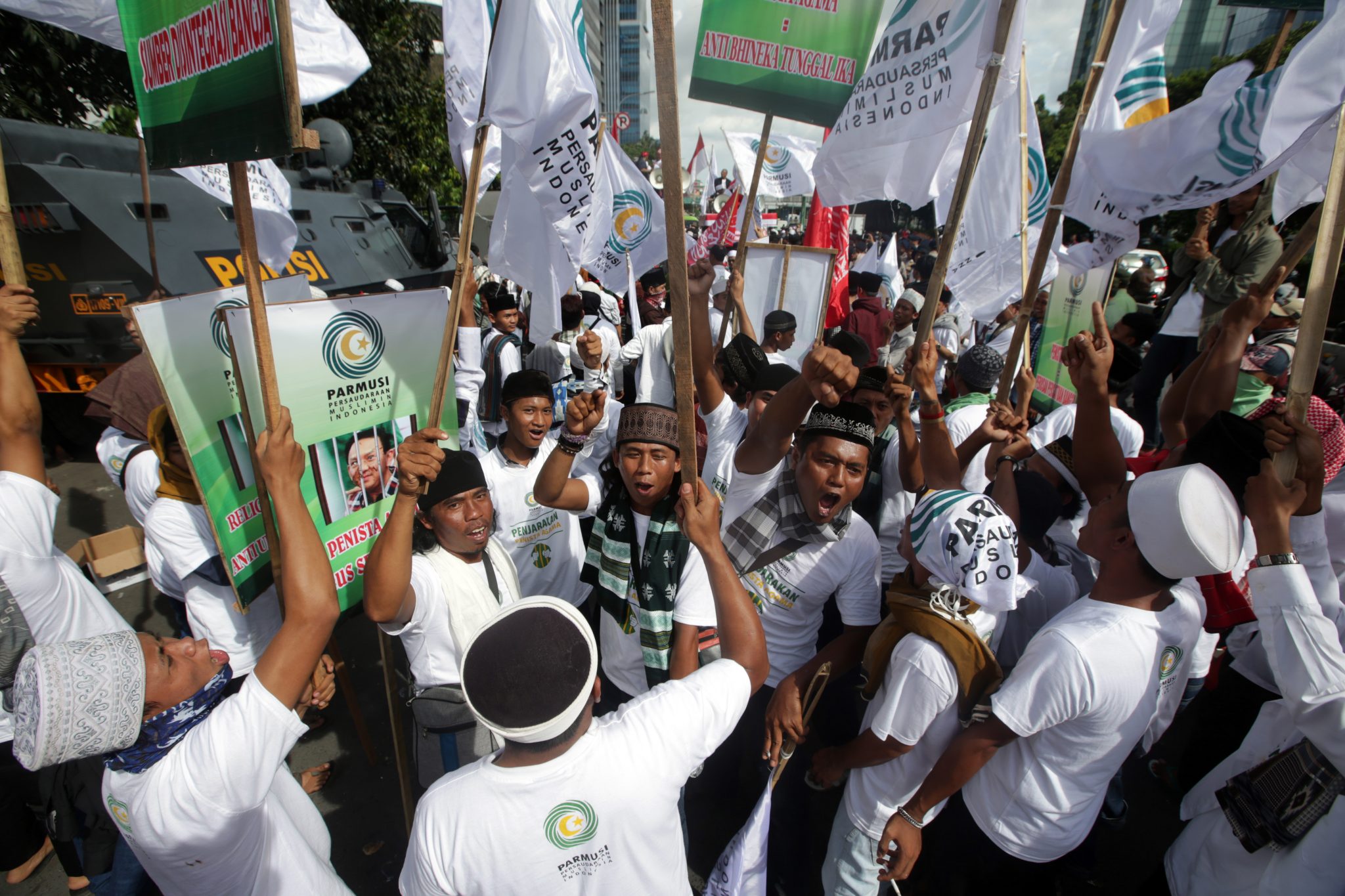Whether guilty or not guilty, the outcome of the Jakarta governor’s blasphemy trial could have big consequences for the country’s political landscape
 Photo: Indonesian muslims shout slogans denouncing Jakarta’s Governor Basuki Tjahaja Purnama, popularly known as ‘Ahok’, outside the North Jakarta District Court in Jakarta, Indonesia, 20 December 2016//EPA
Photo: Indonesian muslims shout slogans denouncing Jakarta’s Governor Basuki Tjahaja Purnama, popularly known as ‘Ahok’, outside the North Jakarta District Court in Jakarta, Indonesia, 20 December 2016//EPA
Following a ruling by an Indonesian court earlier this week, it is likely that the trial of Jakarta’s incumbent governor Basuki Tjahaja Purnama, nicknamed Ahok, will go ahead – and the political ramifications of a conviction could be substantial.
The ethnic Chinese, Christian politician stands accused of insulting Islam, having referenced a Qur’anic verse, Al-Maidah 51, during his campaign ahead of February’s gubernatorial elections. His intention was reportedly to warn voters not to be swayed by conservative Islamic politicians manipulating religion for political purposes.
A series of protest rallies against the governor in November and December suggested that public opinion had turned against him. However, according to Norshahril Saat, a fellow at Singapore’s Institute of Southeast Asian Studies who specialises in religious and political behaviour in Indonesia, it should be noted that Indonesia’s Islamic community as a whole has not turned against him for religious reasons.
“Extremists exist in all societies,” he said. “One must not forget that there are also Muslim groups who are against Ahok’s prosecution, even if they may not support the governor.”
Judges have rejected a challenge by Ahok’s lawyers to drop the case on human rights grounds. While they deliberated on Tuesday a crowd of Islamic protestors rallied outside of the courtroom, chanting “Allahu Akbar” [God is great], according to Reuters.
Should Ahok’s defence team fail to win a further appeal to drop the case, his next hearing will commence on Tuesday 3 January. If found guilty, the governor credited for a series of reforms streamlining Jakarta’s sprawling bureaucracy could face up to five years in prison.
Blasphemy charges in Indonesia have a near 100% conviction rate, according to a Reuters report, and Saat affirmed that it was “difficult to tell” whether Ahok would ultimately be found guilty.
“If Ahok is found guilty, it will appease the Muslim conservative groups, but this will look bad on Indonesian freedom of speech and expression, and [will be] a defeat for democrats and the Muslim moderates,” Saat said, before describing the other possible outcome.
“If Ahok is found not guilty, this will anger the Muslim groups and, I suspect, they will not stop there and [will] blame President Joko Widodo for not listening to their demands. This may affect the campaign for Widodo’s re-election bid in 2019.”

